MYTH #1: Sleep is optional.
We live in an always-on, communications-driven world where Jay Leno and the Internet are just a few of life's many distractions that cut into our sleep. The average American is only getting six to seven hours of sleep each night, and many are convinced they can function with even fewer. Although some people appear unaffected by pulling an all-nighter, most of us struggle to perform after a night of tossing and turning, with our attention spans and reaction times being the first skills to suffer.
However, it is important to be realistic. Because of outside factors like work schedules, social lives and children, eight hours of sleep each night is hard to come by. Focusing on the quality of sleep you do get is the key. Although sleep isn't optional, your sleep environment is, and making sure you're resting under optimum circumstances puts you in control of your sleep cycle and energy level. You might not be able to sleep longer, but you can certainly sleep better.
MYTH #2: Medication is the only answer to sound sleep.
There's a time and place for sleeping medications, but poor sleepers commonly overlook simple things they can do to help themselves, including taking control of their sleep environment. Constant tossing and turning is one of the leading inhibitors of a sound sleep, and often stems from the uncomfortable pressure points created by a mattress. Many manufacturers are designing mattresses with technology to alleviate pressure points, like Sealy's new Posturepedic Innerspring line. Additionally, eliminating sound and light, removing pets from the bed and optimizing the bedroom temperature are necessary first steps to getting a better night's sleep.
MYTH #3: Coffee in the morning won't keep me awake at night.
Drinking coffee is as common as waking up in the morning for many Americans. And caffeine is the most frequently used social drug in the United States. Yes, it's a drug; the effects of caffeine are much more powerful than we give them credit for. Caffeine can last up to 12 hours or more in certain individuals and can seriously prohibit your ability to fall asleep and stay asleep. Anyone who regularly tosses and turns at night should consider removing some or all caffeine from their diet.
Stay In The Know
Marie Claire email subscribers get intel on fashion and beauty trends, hot-off-the-press celebrity news, and more. Sign up here.
MYTH #4: It's OK to ignore insomnia, even if it's mild.
Some types of psychiatric disorders, including depression, have a strong association with consistent, long-term problems falling and staying asleep. Although it has yet to be proven that correcting sleep disorders reduces and normalizes the risk of these problems, it's smart to pursue professional help if do-it-yourself sleep methods aren't working.
MYTH #5: It's normal to sleep poorly as we age.
While it's true that people sleep lighter and wake up more often as they get older, it is not normal or acceptable to feel fatigued or sleepy during the day on a regular basis. Grogginess during the day is not normal and should not be blamed solely on your sleep habits at night. If you're constantly tired during the day, consult with your doctor to get to the root of the problem.
MYTH #6: Going to a sleep lab is my only option.
For those suffering from excessive fatigue or suspected sleep apnea, a critical part of any sleep assessment package is a trip to the sleep lab to have your habits evaluated and monitored closely. However, it is not necessary for people with restless sleep or mild insomnia. Talk to your doctor about your symptoms for tips and treatment – it will most likely save you money and yield more accurate results than visiting a specialty lab.
Dr. W. Vaughn McCall is a professor and chairman of the Department of Psychiatry and Behavioral Medicine at the Wake Forest University School of Medicine and is also a member of the Sealy Orthopedic Advisory Board (OAB), a counsel of top orthopedic surgeons, researchers and clinicians from leading universities and medical centers that offer perspectives on the nature of sleep and product development to better meet the evolving needs of consumers.
-
 The Most Coveted Designer Belts Are Also the Most Unrecognizable
The Most Coveted Designer Belts Are Also the Most UnrecognizableBuck-up. There's a fierce appetite for this luxury IYKYK accessory.
By Julia Marzovilla Published
-
 Charli D'Amelio Says Kim Kardashian "Inspired" Her to Work on Prison Reform
Charli D'Amelio Says Kim Kardashian "Inspired" Her to Work on Prison ReformThe social media star has partnered with REFORM Alliance.
By Iris Goldsztajn Published
-
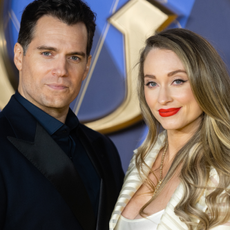 Henry Cavill and His Girlfriend Natalie Viscuso Are Expecting Their First Child
Henry Cavill and His Girlfriend Natalie Viscuso Are Expecting Their First ChildCongratulations are in order!
By Iris Goldsztajn Published
-
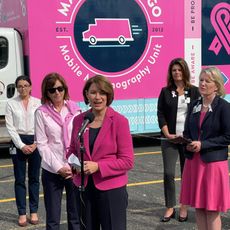 Senator Klobuchar: "Early Detection Saves Lives. It Saved Mine"
Senator Klobuchar: "Early Detection Saves Lives. It Saved Mine"Senator and breast cancer survivor Amy Klobuchar is encouraging women not to put off preventative care any longer.
By Senator Amy Klobuchar Published
-
 How Being a Plus-Size Nude Model Made Me Finally Love My Body
How Being a Plus-Size Nude Model Made Me Finally Love My BodyI'm plus size, but after I decided to pose nude for photos, I suddenly felt more body positive.
By Kelly Burch Published
-
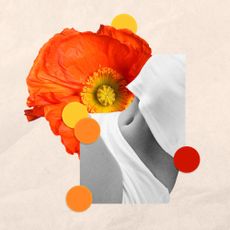 I'm an Egg Donor. Why Was It So Difficult for Me to Tell People That?
I'm an Egg Donor. Why Was It So Difficult for Me to Tell People That?Much like abortion, surrogacy, and IVF, becoming an egg donor was a reproductive choice that felt unfit for society’s standards of womanhood.
By Lauryn Chamberlain Published
-
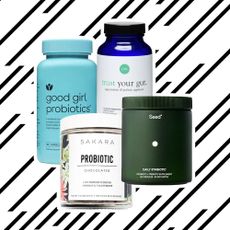 The 20 Best Probiotics to Keep Your Gut in Check
The 20 Best Probiotics to Keep Your Gut in CheckGut health = wealth.
By Julia Marzovilla Published
-
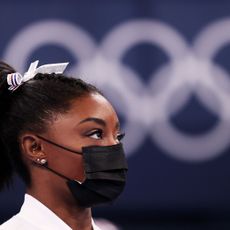 Simone Biles Is Out of the Team Final at the Tokyo Olympics
Simone Biles Is Out of the Team Final at the Tokyo OlympicsShe withdrew from the event due to a medical issue, according to USA Gymnastics.
By Rachel Epstein Published
-
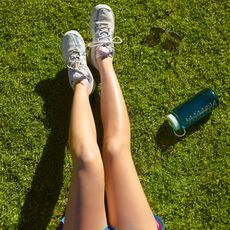 The Truth About Thigh Gaps
The Truth About Thigh GapsWe're going to need you to stop right there.
By Kenny Thapoung Published
-
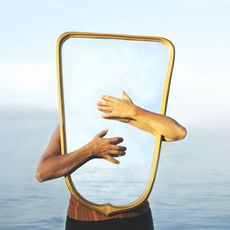 3 Women On What It’s Like Living With An “Invisible” Condition
3 Women On What It’s Like Living With An “Invisible” ConditionDespite having no outward signs, they can be brutal on the body and the mind. Here’s how each woman deals with having illnesses others often don’t understand.
By Emily Shiffer Published
-
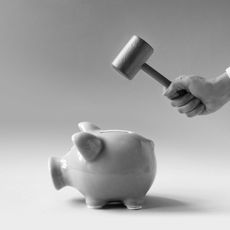 The High Price of Living With Chronic Pain
The High Price of Living With Chronic PainThree women open up about how their conditions impact their bodies—and their wallets.
By Alice Oglethorpe Published